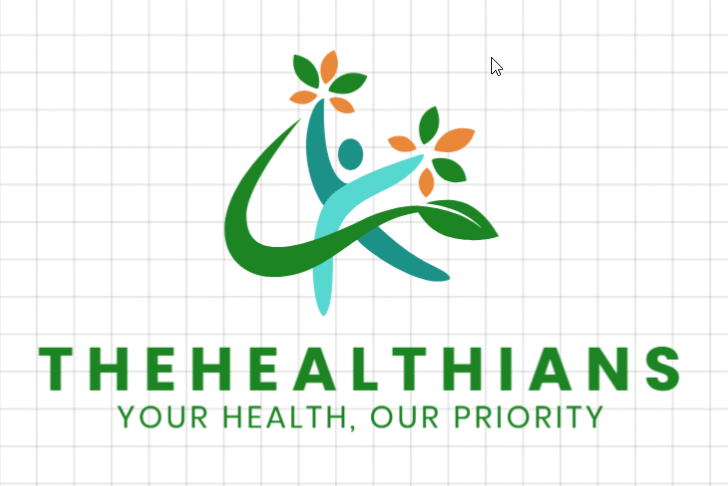Egg nutrition is one of the most debated yet fascinating topics in the health world—and for good reason. For centuries, eggs have been a dietary staple in cultures across the globe, valued not only for their affordability and versatility but also for their exceptional nutrient profile. Whether you prefer them scrambled with fresh herbs, hard-boiled for a quick on-the-go snack, poached to perfection over avocado toast, or baked into a rich dessert, eggs deliver an impressive blend of protein, vitamins, minerals, and healthy fats in every bite.
From powering athletes to nourishing growing children, egg nutrition plays a vital role in supporting energy, muscle repair, and overall wellness. Despite lingering myths about cholesterol, decades of scientific research have confirmed that eggs are one of the most nutrient-dense and bioavailable foods you can eat. In fact, they contain nearly every vitamin and mineral the human body needs in small amounts—making them a true “nature’s multivitamin.”
In this guide, we’ll take a deep dive into egg nutrition facts, unpack the unique benefits of egg white nutrition versus egg yolk nutrition, and explore how even 1 egg nutrition can make a difference in your daily health. We’ll also look at boiled egg nutrition facts, cooking tips for maximizing nutrient retention, and creative ways to add eggs into your diet without getting bored. Whether you’re aiming to boost protein intake, support weight management, or simply make more nutritious food choices, understanding the full picture of egg nutrition will help you crack the code to better health.

Table of Contents
Toggle1. Egg Nutrition Facts at a Glance
When people talk about egg nutritional value, they usually refer to a large chicken egg. On average, 1 egg nutrition looks like this:
Calories: ~70 kcal
Protein: 6–7 g (high-quality, complete protein)
Total Fat: 5 g
Saturated Fat: 1.6 g
Cholesterol: 186 mg
Carbohydrates: <1 g
Vitamins: A, D, E, B12, riboflavin, folate
Minerals: Iron, phosphorus, selenium, zinc
Eggs are a unique source of choline, a nutrient important for brain health and liver function. They also contain lutein and zeaxanthin, two antioxidants that support eye health. Want more high-protein food ideas? Check out our guide to protein shakes for recovery and energy.
2. Egg White Nutrition vs. Egg Yolk Nutrition
Many people separate egg whites from yolks depending on their dietary goals, but the truth is, both parts of the egg offer their own set of health benefits. Understanding the full scope of egg nutrition means appreciating what each part brings to the table.
Egg White Nutrition:
Calories: Only 17 per large egg white — making it a perfect low-calorie protein source.
Protein: 4 g of pure, high-quality protein, essential for muscle repair and recovery.
Fat: 0 g, completely fat-free and cholesterol-free — ideal for low-fat or heart-conscious diets.
Micronutrients: Rich in riboflavin, potassium, magnesium, and a small amount of selenium.
Best For: People on weight-loss journeys, high-protein meal plans, or those looking to keep fat intake low.
Egg Yolk Nutrition:
Calories: About 55 per large yolk — more energy-dense, but full of essential nutrients.
Protein: 2.7 g, complementing the protein from egg whites.
Healthy Fats: 4.5 g, mostly unsaturated fats that support heart and brain health.
Vitamins: A powerhouse of vitamins A, D, E, and K, all fat-soluble and critical for immunity, skin health, and bone strength.
Special Nutrients: Choline for brain development, omega-3 fatty acids (especially from pasture-raised eggs), and antioxidants like lutein and zeaxanthin for eye protection.
Bottom Line:
While egg white nutrition delivers lean protein with no fat, egg yolk nutrition adds healthy fats, vitamins, and unique compounds you can’t get in significant amounts elsewhere. A whole egg truly offers a complete nutritional profile.
3. 1 Egg Nutrition: Why Size and Source Matter
When it comes to 1 egg nutrition, size really does matter — but so does the way the hen was raised.
Standard Large Egg:
Calories: ~70
Protein: ~6 g
Fat: ~5 g
Cholesterol: ~186 mg
Factors That Affect Egg Nutritional Value:
Pasture-raised eggs: Often have higher omega-3 fatty acids, vitamin D, and better overall micronutrient content.
Organic eggs: Free from synthetic pesticides and antibiotics, with potentially higher nutrient quality due to natural feed.
Omega-3 enriched eggs: Hens are fed flaxseed or algae, boosting their omega-3 content significantly.
Egg size: A jumbo egg has more calories, protein, and fat than a medium egg — so portion sizes can impact your daily nutrient intake.
If you care about maximizing egg nutrition facts, paying attention to quality and sourcing is just as important as how many you eat.
4. Boiled Egg Nutrition Facts
Boiled eggs are a staple in healthy diets worldwide because they’re convenient, nutrient-dense, and require no added oils.
Boiled Egg Nutrition (per large egg):
Calories: 70
Protein: 6 g of complete protein containing all essential amino acids.
Fat: 5 g, mostly healthy fats that keep you satiated.
Cholesterol: 186 mg (but research shows minimal impact on blood cholesterol for most people).
Carbs: 0.6 g — making them a perfect low-carb food for keto or low-carb diets.
Why Boiled Eggs Are Great:
Meal Prep Friendly: They store well in the fridge for up to a week.
Versatile: Can be eaten on their own, sliced into salads, mashed into sandwiches, or even turned into deviled eggs.
Portable: Perfect for an on-the-go protein boost.
5. Health Benefits of Egg Nutrition
a. Builds Muscle & Strength
The protein in eggs supports muscle repair after workouts, making them a favorite among athletes and bodybuilders. Pairing them with complex carbs post-workout can enhance recovery.
b. Supports Brain Function
Eggs are one of the richest sources of choline, a nutrient essential for neurotransmitter production and memory retention.
c. Improves Eye Health
Antioxidants like lutein and zeaxanthin in egg yolks protect against age-related macular degeneration and reduce the risk of cataracts.
d. Helps with Weight Management
Eggs keep you fuller for longer, reducing cravings and unnecessary snacking.
e. Boosts Immunity
Nutrients like selenium, vitamin D, and zinc in eggs strengthen immune defense mechanisms.
6. Common Myths About Egg Nutrition
Myth 1: Eggs are bad for your heart.
Recent research shows that for most healthy individuals, dietary cholesterol from eggs has little effect on heart disease risk.
Myth 2: Only egg whites are healthy.
Egg yolks are nutritional goldmines — skipping them means missing out on essential vitamins and healthy fats.
Myth 3: Eating eggs daily is unsafe.
Moderate daily egg consumption (1–2 eggs) is safe for most people and offers numerous health benefits.
7. How to Maximize Egg Nutritional Value
Choose quality eggs: Pasture-raised and omega-3 enriched options often have superior nutrient content.
Cook gently: Poaching, soft boiling, and steaming help preserve delicate vitamins.
Pair with vegetables: The fat in yolks helps absorb fat-soluble vitamins from greens and other veggies.
Mix it up: Rotate between boiled, scrambled, poached, and baked to keep meals interesting.
8. Creative Ways to Enjoy Egg Nutrition
Avocado Egg Toast: A poached egg on whole grain bread with mashed avocado and a sprinkle of chili flakes.
Egg Muffins: Mini baked omelets with spinach, tomato, and feta cheese for a grab-and-go breakfast.
Shakshuka: Eggs poached in a spicy tomato and bell pepper sauce for a flavorful brunch.
Egg Salad: Swap mayo for Greek yogurt for a lighter twist that’s still creamy.
Omelet Wrap: Fill with sautéed veggies, lean meat, and herbs for a protein-packed wrap alternative.
Ramen Upgrade: Drop a soft-boiled egg into your soup for extra protein and flavor.
Baked Avocado Eggs: Crack an egg into an avocado half and bake for a creamy, nutrient-rich breakfast.

9. Egg Nutrition for Special Diets
Eggs are incredibly versatile and adapt well to a variety of dietary needs. Whether you’re following a specialized eating plan for health goals, medical reasons, or personal preference, eggs can often be a perfect fit.
Keto Diet: Eggs are naturally low in carbohydrates and high in healthy fats, making them a staple in ketogenic meal plans. Pair scrambled eggs with avocado or cook them in coconut oil for an energy-packed, keto-friendly breakfast. The combination of fats and protein helps keep you satiated and supports ketosis.
Low-Calorie Diets: Boiled or poached eggs offer a nutrient-dense snack with minimal calories—ideal for those focusing on weight loss without sacrificing essential nutrients. A single large boiled egg contains roughly 70 calories but delivers high-quality protein, vitamin D, and choline.
High-Protein Diets: Eggs are one of the most bioavailable sources of protein, meaning your body can easily absorb and use it. Athletes and gym-goers often rely on them as a quick post-workout option to promote muscle repair and growth. Try an omelet with spinach and mushrooms for a power-packed meal.
Gluten-Free Diets: Naturally gluten-free, eggs fit seamlessly into gluten-free eating patterns without requiring substitutions. They can be used to bind gluten-free flours in baking, making them an essential ingredient for those with celiac disease or gluten sensitivity.
Vegetarian Diets: For vegetarians who consume animal byproducts, eggs provide a complete source of protein often missing from plant-based diets. They also supply vitamin B12, which is mostly found in animal foods.
Mediterranean Diet: While focused on whole grains, healthy fats, and fresh produce, the Mediterranean diet also embraces eggs in moderation—especially when paired with vegetables and olive oil for balanced nutrition.
10. Final Thoughts on Egg Nutrition
Egg nutrition goes far beyond the common perception of “just protein.” These small but mighty foods offer a powerhouse of vitamins, minerals, and healthy fats that support multiple aspects of your health.
From egg white nutrition, which delivers lean protein with minimal fat, to egg yolk nutrition, which contains essential fatty acids, fat-soluble vitamins (A, D, E, and K), and antioxidants like lutein and zeaxanthin for eye health, every part of the egg plays a role in your overall wellness.
Eggs are also one of the most affordable sources of complete protein, making them accessible for almost any budget. Whether you whip them into a vegetable frittata, bake them into healthy muffins, or enjoy them simply boiled with a sprinkle of sea salt, they can easily fit into breakfast, lunch, dinner, or snack time.
When eaten in moderation—around 1–2 eggs a day for most healthy individuals—and prepared using healthy cooking methods (like boiling, poaching, or light sautéing in olive oil), eggs are not just delicious but also one of the most nutrient-packed foods on your plate.
So, whether you’re aiming for better heart health, improved muscle recovery, or simply a quick and satisfying meal, eggs can deliver the nourishment you need. Crack one open today, and let this humble superfood work its magic for your body.

Very clean web site, appreciate it for this post.